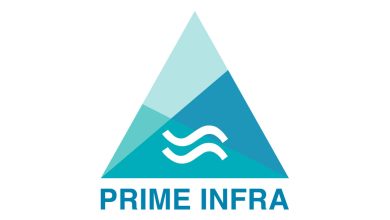Halt on WPS oil search seen to discourage investments

By Kyle Aristophere T. Atienza, Reporter
ECONOMIC and maritime experts on Wednesday warned that the government’s decision to halt oil exploration activities in parts of the South China Sea claimed by the Philippines would push firms to rethink their investments in the area.
They issued the warning after listed firm PXP Energy Corp. was directed by the Department of Energy (DoE) to put on hold its exploration activities in its service contracts in the West Philippine Sea (WPS) until it secures clearance from a Cabinet cluster overseeing diplomatic and national security concerns.
“Other service contractors have seen what happened to PXP, which already has a long-standing contract and the best prospects for development. If despite that, the Philippines remains unwilling to commit to the contract, I expect those other contractors to start thinking twice,” Jay L. Batongbacal, a maritime expert from the University of the Philippines, said in a Viber message.
Mr. Batongbacal said potential investors in the country’s energy sector would probably reconsider offshore petroleum exploration and other related investments in the WPS.
“They will either move on to other countries if they have no other areas, or try to shift to other energy investments that do not involve offshore petroleum if they can,” he said. “There is no point in wasting time and money on contracts which will not even be implemented.”
The DoE’s order came a month after President Rodrigo R. Duterte said at a public address that the country had no choice but to comply with a supposed joint exploration deal with China to avoid any conflict. He said someone from Beijing had reminded him of the supposed agreement upon learning of some companies’ planned activities in the disputed area.
“If the next administration echoes the position of the current one, I would not be surprised if contractors decide to pull out,” Mr. Batongbacal said, who earlier claimed that China is “seriously out” to prevent any petroleum exploration and development by the Philippines within its own waters.
He said the Philippine government’s flip-flopping on the exploration project in the WPS is a sign that it is highly favoring China’s demands.
“The economy would find it challenging to reap benefits from this,” John Paolo R. Rivera, an economist at the Asian Institute of Management, said in a Viber message. “The Philippines must simultaneously leverage on its legal victory and relationship with China.”
In 2020, the DoE, with Mr. Duterte’s approval, issued a resume-to-work notice to the service contractors conducting oil exploration in the areas of service contracts (SC) 59, 72, and 75. PXP operates under SC No. 75 while its subsidiary, Forum Energy Ltd., operates under SC No. 72.
Mr. Duterte’s spokesperson, Jose Ruperto Martin M. Andanar, said recently that the DoE had already sought the reconsideration of the suspended oil exploration activities.
“Current and potential investors will certainly look to the next administration for policy clarity on these questions, as they cannot rely on tentative, shifting decisions on these concerns,” said Terry L. Ridon, convenor of infrastructure and investment think tank InfraWatchPH.
Citing an arbitral ruling that rejected China’s claim to more than 80% of the sea based on a 1940s map, Mr. Ridon said exploration activities within the WPS should be allowed to proceed as these are within the country’s territorial sea and exclusive economic zone.
“This has been upheld by the Hague ruling recognizing our rights over these waters, including disputed waters.”
The experts urged the Philippine government to create a contingency plan that would be enforced should Beijing become more aggressive in the area due to Philippine government-led exploration activities.
Local media earlier reported that two ships hired by PXP to do a seismic survey in the WPS were tailed and overshadowed by a Chinese Coast Guard ship earlier this month.
“It’s been long past the time for the government to have contingency plans for this kind of activities in WPS,” Mr. Batongbacal said, noting that Chinese ships’ presence and possible interference should have already been “considered and planned for, even before.”
“The reaction of the government to the incident with PXP shows that it does not plan at all,” he said.
Mr. Batongbacal said the next administration should not only allow the resumption of exploration activities in the area “but be willing to protect the survey to ensure it is carried out.”
“The Philippines should act with confidence and be ready to call out China if it moves more aggressively,” he said. “It should not be afraid of exercising its lawful and legitimate rights.”
Meanwhile, Center for Energy, Ecology, and Development Executive Director Gerry C. Arances reminded the government that it must reconsider any oil exploration since it has committed to drastically reduce the country’s greenhouse gas emissions.
“On one hand, halting explorations for oil in the West Philippine Sea is welcome for the energy transition demanded by the climate crisis,” he said, noting that the International Energy Agency made quite clear last year that no development of new gas and oil fields should be allowed beginning 2021 if the country still wants to keep the 2050 net-zero ambitions possible.
“If the ban on oil exploration is put in place as a permanent response to the need to decarbonize and not a product of intimidation by foreign powers, we would be sending a signal that the Philippines as a sovereign nation is deliberately turning its attention to clean energy over oil and other fossil fuels, and will welcome investments as such.”




